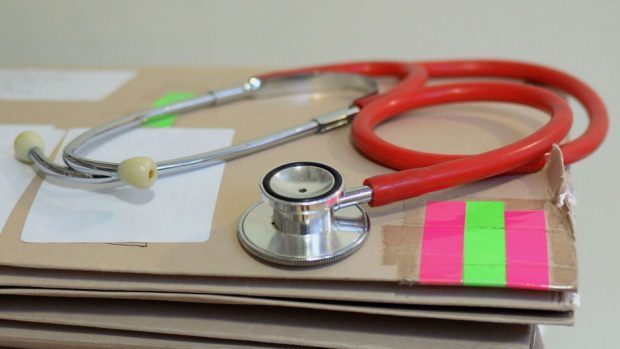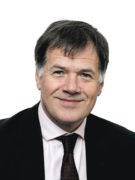A couple of weeks ago, I came out of my consulting room to call my next patient. Further down the corridor I noticed a woman, who had just left a colleague’s room, standing quietly outside the closed door, her eyes unfocused, her hand on the door frame for support. My first instinct was to approach her and ask if she was all right. Had she been given bad news? I hesitated, realising she needed to take a private moment to collect her thoughts.
Clearly, she had experienced a significant moment of some sort during her consultation. Then, after a brief pause, she straightened up, took a deep breath and, with me holding the door, left the surgery to return to her life outside. I watched for a moment before calling my next patient. Then the next, then the next.
Finally, I was able to take a quick break and I joined my colleagues in the staff room for a welcome cup of tea because, no matter how frantic our schedule, we try never to miss the chance to gather together to decompress, recharge, or just blether with close colleagues who understand what we do and how draining it can be. I remembered the woman in the corridor and asked whose room she had emerged from, whether I had been right – had this patient received bad news?
My colleague had to search his memory for a few moments until he recalled the consultation. “No,” he replied, “not particularly.” The patient had a complex problem that was unlikely to fit a single medical diagnosis and the consultation had been a chance to take stock and discuss possible next steps.
It was an ongoing process, their relationship was good and it sounded to me that he was doing an excellent job of walking alongside his patient through difficult times.
GPs see at least five patients an hour. By necessity we must move swiftly from case to case, taking a moment beforehand to catch up on the medical record before calling in the patient, then we have our consultation and finally have a few minutes to write up their notes before moving on to the next person.
I now know what I had seen in that moment in the corridor. For the patient, the appointment is very different. It is planned and booked, often weeks in advance, with a purpose in mind – restoring health. That appointment is their time to explain the problem and hopefully reach some conclusions – help, cure, reassurance, therapy, relief from suffering or just an explanation. In a few minutes, it is over and they are spun back into the real world, clutching a prescription or given the promise of further tests, a referral or sometimes simply left to consider (and try to remember) the information and advice they have received.
Just as the waiting room represents a liminal space between the outside world and the GP surgery before a consultation, so the corridor leading to the exit is a similarly poignant space. It could be a time to stride out, prescription in hand, confident in the proposed treatment, or relieved by reassurance, or delighted by good news, or energised by new ideas, but conversely it must also be frightening, sometimes, to be back out there on your own. For some, it will literally be the first few steps they take in coming to terms with a serious and life-changing diagnosis.
Perhaps they were still making their way out as their GP called in the next patient. Perhaps they passed each other in the corridor. Perhaps they felt embarrassed at opening up as much as they did, or crying, when everyone around seems so busy. I get it. With our appointment times being the shortest in Europe and our surgeries a seeming conveyor belt of people with mere minutes to explain their medical and emotional needs, it must be easy to pause in the corridor and wonder what, really, has changed.
Hopefully, plenty. Behind that closed door the GP, too, will have paused. It would be impossible to do this job without taking stock of each encounter and reflecting on what was, or was not, decided and what we might, perhaps, have raised or done differently. If we didn’t take these moments, we would miss the chance to learn and stay human, a surefire recipe for burnout.
Regardless of whether the patient walked away from the surgery empty-handed or loaded with follow-up information, they have not been forgotten about as soon as they leave the building. Their medical records will be updated in an ongoing narrative of their lives and struggles which we keep, and monitor, and act on whenever we have to. The surgery is a clerk of record of patients’ existence and it’s always there, like the weather.
I hope the lady in the corridor didn’t feel she was alone in her journey as she gathered herself to leave. GPs are often rushed, often late and often get things wrong, but we pause, too.
Dr Miles Mack is a GP in the Highlands and the former chairman of the Royal College of General Practitioners Scotland

